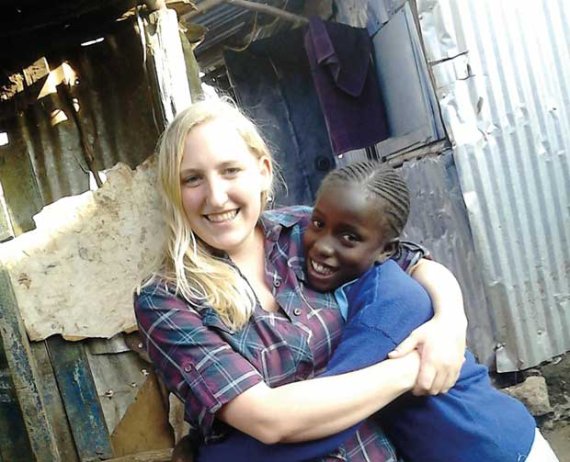‘Kibera is exactly as you imagine a slum to be. Garbage everywhere and open drains. If it rained it got so muddy you could hardly walk. I lived in a house on the edge of this slum for three months. I had got in touch with a Kenyan woman who had put up foreigners in her house before. She and her family lived safely behind a gate, and I could stay there without any problems. It was a friendly family, and I was really lucky. Sometimes you had to adjust. They had a shower, but it didn’t work for two months, so I just had to cope with a bucket of water.
It is a precarious existence in a slum like Kibera. People try to scrape a living together by doing odd jobs or by what they call ‘hustling for money’. Women do the laundry, for instance, for people who are just that bit better off than them. For my research I interviewed women in Kibera. About their lives there and about how they gradually improve them bit by bit. It turned out that education for their children was the most important thing for them, but they generally don’t have money to send their children to school. Sometimes I felt awkward about my position. After the interview I could go home, but they did not have a comfortable, safe place to withdraw to.
Going out in the evenings was not really an option. Occasionally I went for a drink in the nearby bar, but walking into town was too dangerous. Nevertheless, I always felt at ease in Kibera. People there are very sociable. If you bump into someone you know you don’t get away with just a “hi”. People always take the time for a chat. I watched several Premier League matches in a den that was packed with men sitting on benches – Kenyans are crazy about football. For 30 shillings I could watch two matches on two screens at the same time.’

